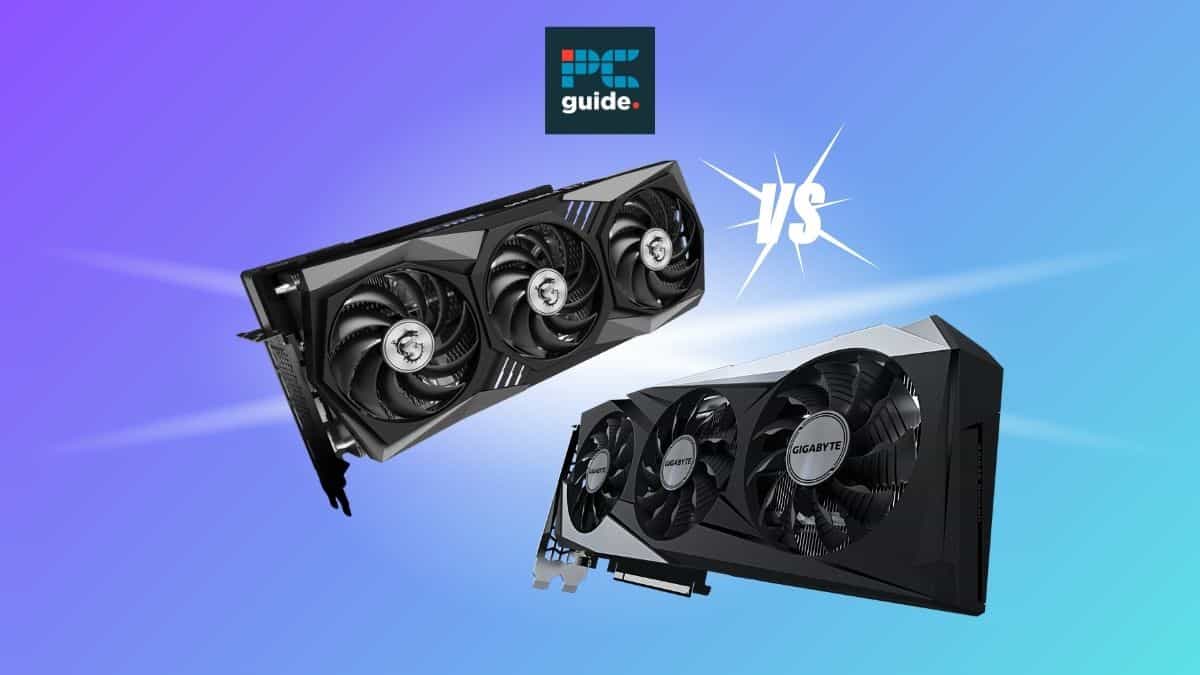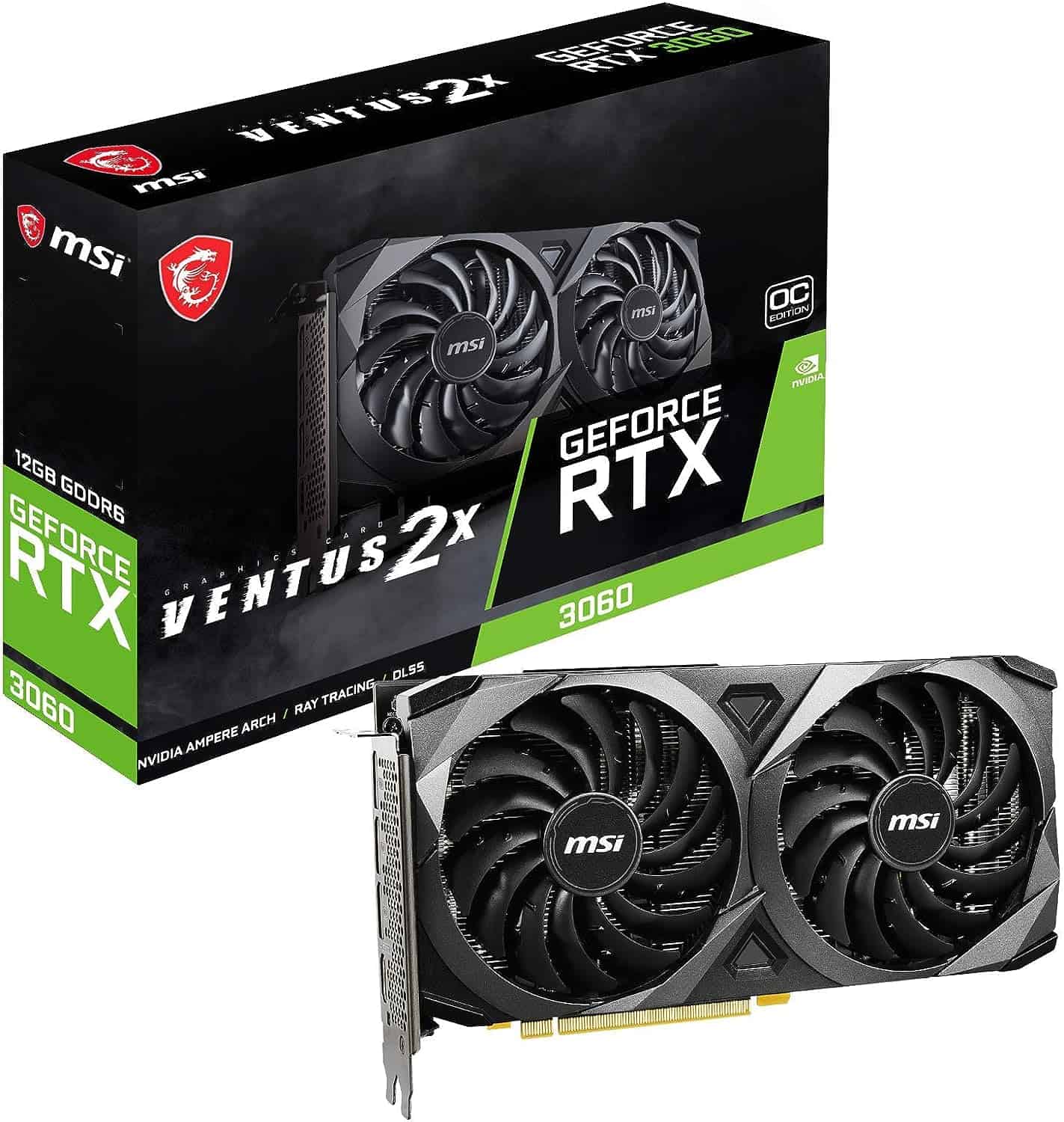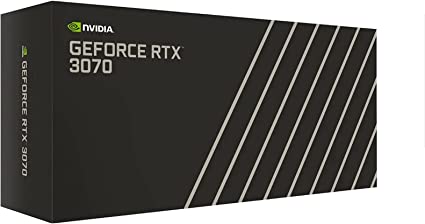Nvidia RTX 3060 vs Nvidia RTX 3070 – is there much difference?

Table of Contents
Nvidia consistently produces impressive graphics cards, and with its most recent releases, we wondered how some of its earlier products stack up. The Nvidia Geforce RTX 30-series is still a solid choice for any gaming enthusiasts or professionals trying to get the most out of their system. But which GPU in this series is best for your specific needs? In this article, we compare two GPUs from the 30-series; Nvidia RTX 3060 vs Nvidia RTX 3070. Join us as we take a look at each of their specifications, performance, and value. Let’s jump right in!
But first, if you’re looking to find out more about the Nvidia RTX 30-series, then check out some of our other coverage on the topic. For example, our Nvidia RTX 3060 vs RTX 2060 or our Nvidia RTX 3060 vs RTX 3060 Ti comparison guides.
Prime Day is finally here! Find all the biggest tech and PC deals below.
- Sapphire 11348-03-20G Pulse AMD Radeon™ RX 9070 XT Was $779 Now $739
- AMD Ryzen 7 7800X3D 8-Core, 16-Thread Desktop Processor Was $449 Now $341
- ASUS RTX™ 5060 OC Edition Graphics Card Was $379 Now $339
- LG 77-Inch Class OLED evo AI 4K C5 Series Smart TV Was $3,696 Now $2,796
- Intel® Core™ i7-14700K New Gaming Desktop Was $320.99 Now $274
- Lexar 2TB NM1090 w/HeatSink SSD PCIe Gen5x4 NVMe M.2 Was $281.97 Now $214.98
- Apple Watch Series 10 GPS + Cellular 42mm case Smartwatch Was $499.99 Now $379.99
- ASUS ROG Strix G16 (2025) 16" FHD, RTX 5060 gaming laptop Was $1,499.99 Now $1,274.99
- Apple iPad mini (A17 Pro): Apple Intelligence Was $499.99 Now $379.99
*Prices and savings subject to change. Click through to get the current prices.
Nvidia RTX 3060 vs Nvidia RTX 3070 – specs at a glance
| Specifications | Nvidia RTX 3060 | Nvidia RTX 3070 |
|---|---|---|
| Cores | 3584 | 5888 |
| TMUs | 112 | 184 |
| Memory size | 12 GB GDDR6 | 8 GB GDDR6 |
| Memory Bus | 192 bit | 256 bit |
| Bandwidth | 360.0 GB/s | 448.0 GB/s |
| Base Clock | 1320 MHz | 1500 MHz |
| Boost Clock | 1777 MHz | 1725 MHz |
| RT Cores | 28 | 46 |
| MSRP | $329 | $499 |
| TDP | 170 W | 220 W |
Specifications comparison
Diving straight into the key differences, the Nvidia RTX 3060 targets the 1080p gaming market, while the RTX 3070 sets its sights on the 1440p experience. Despite the RTX 3060 boasting a hefty 12GB of VRAM, which might suggest it’s cut out for 1440p gaming, the reality firmly plants it as a champion of 1080p. The RTX 3070, on the other hand, despite having a seemingly modest 8GB of VRAM, is purpose-built for 1440p PC gamers, efficiently outpacing its counterpart in this arena.
The real game-changer between the two lies in their memory configurations. The RTX 3070’s memory bandwidth and memory bus design ensure peak performance for 1440p gaming, underscoring its suitability for higher resolutions. Meanwhile, the 3060’s 170W TDP, compared to the 3070’s 220W, highlights its efficiency but also subtly indicates its performance ceiling at more demanding resolutions.
Clearly, the RTX 3060 excels in 1080p gaming scenarios, offering both efficiency and power, but when it comes to stepping up to 1440p, the RTX 3070 takes the lead with undeniable prowess. Even with DLSS technology potentially boosting the 3060’s performance, it cannot bridge the gap at higher resolutions. For gamers aiming to push their systems beyond 1080p, the RTX 3070 is not just a better choice; it’s the essential one for achieving the maximum amount of power and optimal gaming experience.
Performance comparison
While the RTX 3070 might not hold its ground against newer models like the 4060 Ti, it clearly outperforms the RTX 3060. Public benchmarks reveal that the 3070 nearly doubles the frame rates in 1080p gaming compared to the 3060. On average, the 3060 trails behind by 27%, a significant margin that highlights a diminishing return on investment as you move down the GPU hierarchy.
Shifting up to 1440p doesn’t significantly change the RTX 3060’s relative position. The performance takes a further 25% hit, making ultra settings at this resolution challenging. Most games become unplayable at 1440p on the 3060 if aiming for ultra settings, whereas the 3070 manages to maintain around 60 FPS in the majority of titles, albeit with some effort.
The RTX 3060 serves well for 1080p gaming, catering to those willing to adjust settings for ultimate performance. However, the RTX 3060 Ti, despite its lower memory, presents a better option, outperforming the 3060 by nearly 20%. For those with a bit more flexibility in their budget, opting for the 3070 over the 3060 is advisable for a markedly better gaming experience. Stay tuned as we delve into the pricing dynamics of these GPUs in the following section.
Price comparison
In the pricing showdown between the Nvidia RTX 3060 and RTX 3070, the initial MSRPs set the stage for a significant decision-making factor for potential buyers. The RTX 3060 launched at an attractive $329, presenting a substantial $170 savings over the RTX 3070’s heftier $499 price tag. However, the landscape shifts when considering the current market prices, where the dynamics of value and performance intersect even more distinctly.
Bargain hunters can now spot the 3070 dipping as low as $359, though it typically hovers around $430 on average. On the flip side, the 3060 has seen a notable price drop, now available for as little as $269, with its average price settling around $280. This adjusted pricing narrows the gap, making the decision between the two GPUs more nuanced.
For those operating within a tight budget, the 3060 emerges as a viable option, especially when priorities tilt toward cost-saving. Yet, it’s important to bear in mind the concessions in settings and FPS that accompany this choice. Conversely, for gamers able to reallocate funds from other components, such as the PSU or CPU, snagging a 3070 could unlock significantly better performance.
Nvidia RTX 3060 vs Nvidia RTX 3070 – which is better?
Both GPUs boast impressive specs and are highly capable cards. However, in our eyes, there is a clear winner, the RTX 3070. The RTX 3070 stands as a powerhouse designed for the rigors of 1440p gaming, built to meet the demands of gamers seeking high fidelity with its smooth performance, higher clock speeds, and higher FPS.
In contrast, the RTX 3060, despite its deceptive 12GB of VRAM, falls short of being a true 1440p contender. The inclusion of such a high VRAM capacity on a card that primarily excels at 1080p gaming raises questions about its utility, suggesting that a reduction in VRAM—and consequently in price—could have positioned the 3060 as an unbeatable deal in its category. Ultimately, while the 3070 is engineered to push the limits of modern gaming, the 3060 seems caught in a no-man’s-land, oversized VRAM and all, leaving it as a GPU that looks the part of a 1440p performer without truly being one.
Nvidia RTX 3060 vs Nvidia RTX 3070 – conclusion
In wrapping up the comparison between the Nvidia RTX 3060 and RTX 3070, it’s evident there’s a significant divide in their capabilities and intended use. The choice between the two cards ultimately comes down to what you want from your PC and how much you’re willing to pay for that. If you’re someone who is looking for the best quality performance for highly demanding tasks then spending that bit more on the RTX 3070 is the right option. However, if you have a tighter budget and are requiring your GPU to perform basic functions with ease then the RTX 3060 is also a great choice.



